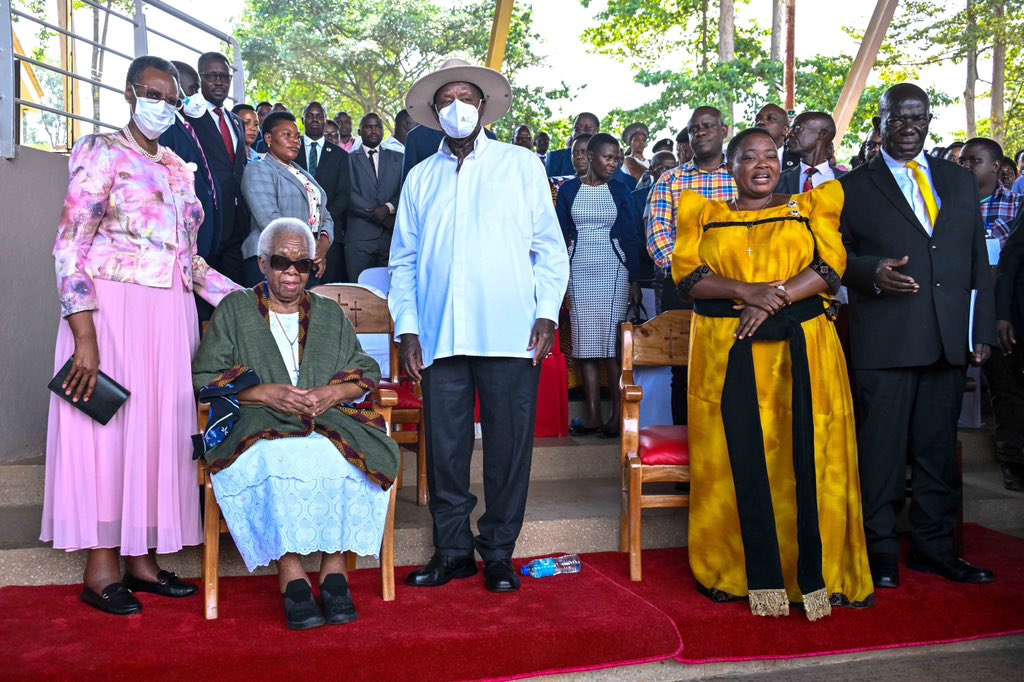
Several Western countries have condemned the Anti-Homosexuality Act enacted in Uganda in May 2023, yet Ugandan leaders stand firm, defending the legislation as crucial for protecting family values and native culture.
President Yoweri Museveni recently emphasized Uganda's resilience during an address to thousands of pilgrims at the Uganda Catholic Martyrs Shrine in Namugongo, Wakiso District.
He declared, “Like on the issue of homosexuals, they talk outside there so much; this one, that one. They don’t know that Uganda is a land of martyrs. If you want to play around, you play around with Uganda. You will see. You will not like it.”
His remarks were met with applause from the congregation. The United States, a significant development partner for Uganda, responded to the legislation by removing Uganda from the Africa Growth Opportunity Act (Agoa), a preferential trade arrangement. Additionally, both the U.S. and the U.K. have imposed sanctions on senior Ugandan officials, including Parliament Speaker Anita Among, accusing them of corruption and human rights abuses. Among, who was the chief guest at the Uganda Anglican Martyrs Site, dismissed these sanctions as a witch hunt by the West, targeting her for her role in supporting the law.
During a homily at the same event, Nebbi Catholic Diocese Bishop Raphael P’Mony Wokorach, the Gulu Archbishop-designate, praised the parliamentarians for their courage in passing the law despite foreign opposition.
“They tightened it [anti-gay law] and kicked it out [homosexuality]. Big courage!” he said, receiving cheers from the crowd.
The World Bank last year halted new loan approvals for Uganda, citing that the spirit of the anti-gay bill violated the Bank’s values. President Museveni criticized this decision, accusing the World Bank of attempting to impose foreign culture on Uganda through financial power. Despite ongoing talks between the government and World Bank officials to normalize relations, no final outcome has been reached.
Archbishop-designate Wokorach also urged lawmakers to combat corruption with the same vigor they used to pass the anti-gay law. President Museveni echoed this sentiment, acknowledging corruption as a significant issue and announcing plans to address it in his upcoming State-of-the-Nation address.
The Inspectorate of Government reported that Uganda loses Shs9 trillion annually to corruption, roughly 17 percent of the current financial year’s Shs52 trillion budget.
President Museveni, accompanied by his wife Janet, who serves as the Education minister, used the 60th Uganda Martyrs Day anniversary to urge clerics to preach both faith and prosperity, enabling Christians to meet their physical needs on earth. The celebrations, held on June 3, commemorate the 45 young men (22 Catholics and 23 Anglicans) martyred between 1885 and 1887 for refusing to renounce Christianity.
Kampala Archbishop Paul Ssemogerere highlighted the importance of the martyrs' legacy, reminding attendees of the cost of standing up for one's faith and the enduring power of such a stand.
“As we commemorate this day, let us draw inspiration from their courage and commitment, striving to uphold the values they bravely defended,” he said.

















